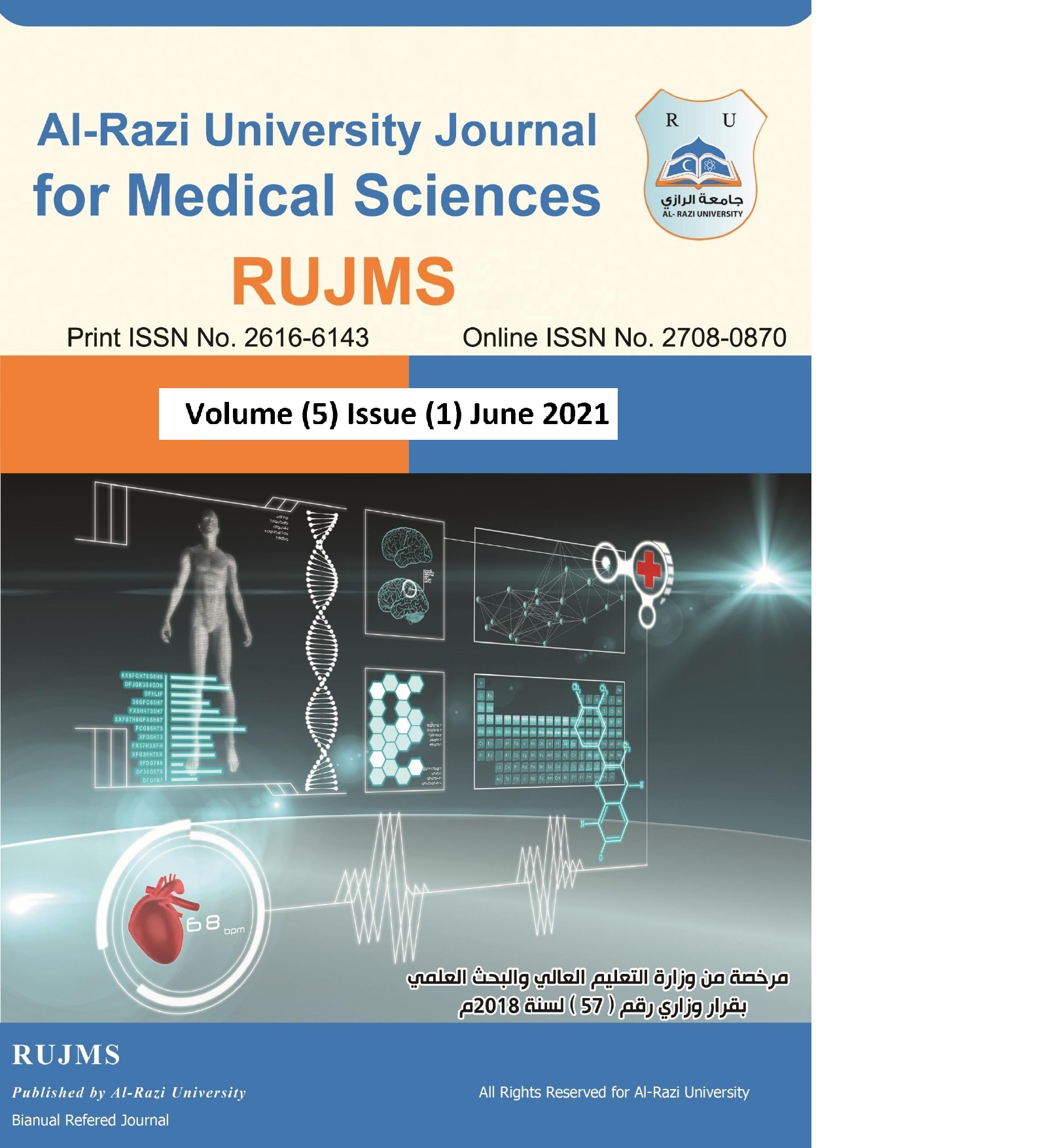Predictors of Major Adverse Cardiac Events After Percutaneous Coronary Intervention in Sana’a City-Yemen (Single center study)
Abstract
الخلفية: في الآونة الأخيرة، بدأت العديد من المستشفيات في اليمن استخدام إجراء التدخل الشرياني التاجي الجلدي (PCI) لعلاج أمراض الشريان التاجي، بما في ذلك مستشفى الدكتور هاشم عراقي. ومع ذلك، لم يتم حتى الآن إجراء أي بحث منظم لتنبؤ بمعدلات الوفيات والمضاعفات بعد PCI في اليمن.
الأهداف: تقدير معدل حدوث مضاعفات PCI، وتحديد العوامل المستقلة المتنبئة بالأحداث القلبية السلبية الرئيسية (MACE) بعد إجراء PCI.
المرضى والطرق: هذه دراسة ملاحظات استرجاعية شملت 202 مريضاً خضعوا لـ PCI في مستشفى الدكتور هاشم عراقي، مدينة صنعاء، اليمن من يناير 2020 حتى فبراير 2021.
النتائج: كان العمر الوسيط 58.5 سنة (النطاق = 28-82 سنة). من بين المرضى في دراستنا، كان 100 مريض (49.5%) في سن 60 عاماً أو أكبر. وكانت غالبية المرضى من الذكور بنسبة 177 مريضاً (87.6%). كانت أكثر عوامل الخطر قبل الإجراء شيوعًا هي التدخين في 136 مريضاً (67.3%)، ونمط الحياة السكوني في 129 مريضاً (63.4%)، وارتفاع ضغط الدم (HTN) في 101 مريض (50%)، ومرض القلب الناجم عن تضيق الشرايين (IHD) في 96 مريضاً (47.5%). بشكل عام، كان معدل حدوث مضاعفات PCI حوالي 28% ورصد ذلك في 56 مريضاً. حدثت الوفيات في المستشفى لدى مريض واحد فقط (0.5%). كانت القصور الكلوي وانخفاض ضغط الدم هما الأكثر شيوعًا كمضاعفات PCI ورصد ذلك في 28 مريضاً (13.9%) و 19 مريضاً (9.5%) على التوالي. حدثت MACE في مجموع 39 مريضاً (19.3%). ووجدنا أن مرض الكلى المزمن (CKD)، وانخفاض كفاءة القلب الناجم عن تضيق الشريان الأمامي الأيسر قبل PCI (LV EF < 30%)، والصدمة القلبية الناجمة، واستخدام عدة دعامات PCI، ونقص هيموغلوبين الدم بعد PCI (Hb < 11)، وزيادة مستوى الكرياتينين في الدم بعد PCI (S.Cr > 2) كانت مرتبطة بشكل signficant بزيادة MACE.
الاستنتاج: كان معدل حدوث مضاعفات PCI مرتفعًا في دراستنا. وكان CKD، وLV EF < 30% قبل PCI، والصدمة القلبية، وHb < 11 بعد PCI، وS.Cr > 2 بعد PCI، وعدة دعامات PCI هي عوامل مستقلة متنبئة بزيادة MACE.

